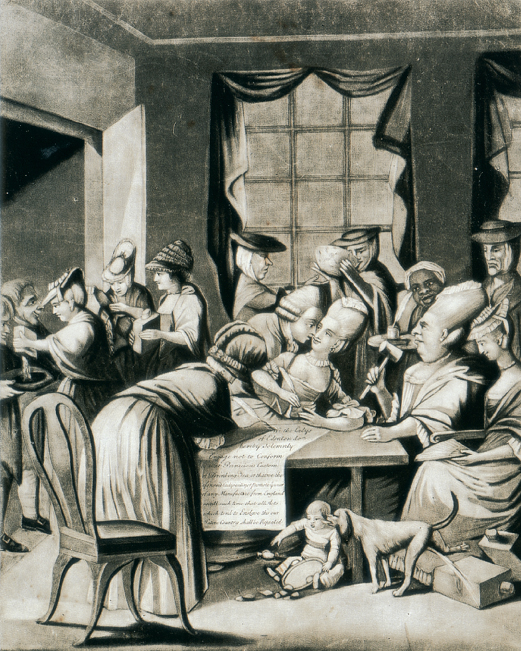Why did British authorities send troops to occupy Boston in the fall of 1768?
Printed Page 156

Figure false: Edenton Tea Ladies
Figure false: Patriotic women in Edenton, North Carolina, pledged to renounce British tea and were satirized in this British cartoon, which shows brazen women shedding traditional notions of femininity. Neglected babies, urinating dogs, wanton sexuality, and mean-looking women were the consequences of meddling in politics, according to the artist. The cartoon was humorous to the British because of the gender reversals it predicts and because of the insult it directs at American men. Library of Congress.
ROCKINGHAM DID NOT LAST LONG as prime minister. By the summer of 1766, George III had persuaded William Pitt to resume that position. Pitt appointed Charles Townshend to be chancellor of the exchequer, the chief financial minister. Facing both the old war debt and the cost of the British troops in America, Townshend turned again to taxation, but his plan to raise revenue touched off coordinated boycotts of British goods in 1768 and 1769. Even women were politicized as self-styled “Daughters of Liberty.” Boston led the uproar, causing the British to send peacekeeping soldiers to assist the royal governor. The stage was thus set for the first fatalities in the brewing revolution.
CHRONOLOGY
1767
- – Parliament enacts Townshend duties.
1768
- – British station troops in Boston.
1768–1769
- – Merchants sign nonimportation agreements.
1770
- – Boston Massacre.